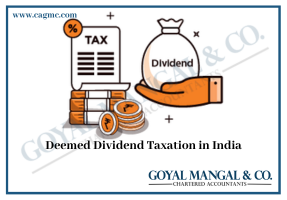
Handling the obligations of reporting for Micro, Small, and Medium Enterprises (MSMEs) can be a challenging undertaking. It is crucial to have a clear understanding of the complexities involved. In this complete article, our objective is to simplify the complexities and offer you clear, sequential instructions. We have gathered a list of commonly asked questions (FAQs) to answer any concerns or inquiries you may have. “Let’s navigate to embark on the journey of MSME reporting!”
| Table of Content |
Meaning of MSME Form 1
MSME Form 1 is a semi-annual statement of the MCA that specifies that certain businesses must disclose outstanding payments to MSME suppliers. The MSME Declaration Form was introduced by the Ministry of Corporate Affairs (MCA) on January 22, 2019, to strengthen the provisions of the MSME Development Act, 2006 (MSMED). The main purpose of this MSME form is to track companies with outstanding dues to MSMEs and ensure that MSME suppliers receive payment on time.
Who should file MSME Form 1?
MSME Form 1 is part of the reporting requirements for Micro, Small, and Medium Enterprises (MSMEs) in India. MSME Form 1 needs to be filed by entities falling under the definition of MSMEs and meeting certain criteria based on their investment in plant and machinery or equipment, as well as their turnover.
Provisions relevant to MSME
As per section 405 of the Companies Act 2013 the relevant order has been issued containing following provisions:
- Terms of payment: All companies that work with MSMEs are required to complete payments within 45 days starting from the date the goods or services are accepted or considered accepted. The need to submit a report.
- Reporting Requirements: Companies that exceed the 45-day payment period are required to provide a half-yearly report to the Ministry of Corporate Affairs using the MSME Form I. Deadline for Filing:
- Deadline for submitting necessary documents: During the time frame of April through September of financial year the final date for submission is October 31st of the financial year. From October to March of financial year inclusive: The due date is April 30th of assessment year.
- Information to be given: The overall amount owed to MSME suppliers that haven’t been paid yet. Each supplier’s name and PAN number. The total amount owed to each supplier. Due date for payment. Causes behind the delay in payment.
Payment Obligation under MSME Act – Section 15
Payment obligations state that payments should be made either on or before the agreed-upon date, provided it’s documented in writing. If there’s no written agreement, payment must be made before the “appointed day.” Moreover, as per the MSME Law, in cases where a written agreement exists, the utmost duration for payment is fixed at 45 days starting from the moment of approving the goods or services. It is essential that both purchasers and providers are conscious of and follow these schedules to guarantee seamless monetary transactions.
Date and rate for Interest payable Section 16
- Payment Detail: From the appointment date the buyer pays monthly compound interest.
- Interest Rate: The Interest rate will be three times as that of bank rate.
Micro and small enterprises facilitation council Section 18
- Conflict Resolution: The Micro and Small Enterprises Facilitation Council offers a means for parties involved in payment disputes to find a resolution.
- Process of conciliation: By offering the conciliation services the Council follows the protocols of the Arbitration and Conciliation Act, 1996.
- Arbitration: where a neutral third party facilitates discussions and makes a decision that is binding on both parties its called arbitration. It is the process of resolving disputes outside of court, if attempts at reaching an agreement are unsuccessful; the Council will turn to arbitration as stated in the Arbitration and Conciliation Act, 1996, with reference to Section 7(1).
- Period: Any conflicts that are brought up should be settled within a period of 90 days, guaranteeing a prompt method of resolving the issue. Basically, Section 18 sets up a strong structure for efficiently resolving disputes regarding payments. It highlights the importance of conciliation and arbitration, while also enforcing a strict deadline of 90 days for promptly resolving these issues.
MSME Act Terms
- Day of appointment: The term “appointed day” refers to the day right after the fifteen-day duration starting from the day a customer accepts or is considered to have accepted goods or services from a supplier. There is ambiguity surrounding the meaning of the text. Day of Embrace or Day of Inclusion
- Day of Acceptance: The day of acceptance is when you physically get the goods or services unless there are objections. If you have a problem with what you received, and you tell the seller in writing within fifteen days, the day they fix the issue is then considered the day of acceptance. This helps ensure fair treatment and resolution for both buyers and sellers.
- Designated Acceptance Day: If the buyer does not express any written objections within fifteen days of receiving or utilizing the product or service, the “day of deemed acceptance” coincides with the exact date of delivery or service. If no disagreements arise during this specified time frame, it is understood that acceptance occurred on the day when delivery or service took place.
Questions related to MSME Reporting
1. How to check requirement for fling MSME-1 Form?
To find out if your company should complete the MSME-1 filing, you should take into account the following factors:
- Vendor of a small or micro enterprise that is officially registered: Make sure to verify if your company has any MSMEs registered as vendors. “
- Unsettled amounts due: Please confirm if there are any unpaid dues owed to these small and medium-sized enterprise vendors.
- Payment delay: Evaluate whether your company has made late payments to these vendors exceeding a period of 45 days.
Your company must submit MSME-1 if it fulfils certain requirements, such as having registered Micro and Small vendors, pending payments, and delays surpassing 45 days. Filing is unnecessary in all other cases.
2. How can we determine if a creditor is officially recognized under the MSME category or not?
There is currently no dedicated feature on government websites or other online platforms that allows users to verify the registration status of a vendor under MSME. The sole means of verifying this information is by directly reaching out to the vendor (creditor) using channels like phone calls, emails, or other forms of communication. The supplier must be capable of furnishing evidence that verifies their registration status as a Micro, Small, and Medium Enterprise (MSME).
3. Should the company consider including vendors registered under MSME but categorized as ‘Medium’ for MSME-1 reporting?
No, as per the notification by the Ministry of Corporate Affairs (MCA), companies need to furnish information regarding only those vendors who are registered as ‘Micro and Small’ in MSME-1. If a vendor falls under the ‘Medium’ category as registered with MSME, it is not necessary to include them in the MSME-1 form. The requirement to report applies specifically to transactions involving ‘Micro and Small’ businesses.
4. If the company has paid the MSME supplier more than 45 days, will the payment be included in form MSME-1 if the payment is not past due by September 30, 2023?
Since Form MSME-1 specifically requests details of the outstanding amount as of the reporting date, are payments made and outstanding as of September 30, 2023, not need to be reported in the form. However, if a business chooses to report these payments, an attachment detailing the payment made can be included for clarity.
5. If MSME payments have been pending since the first half of the year, should we communicate these details in the second half of the MSME-1 filing year?
It does not matter which period or year the payment refers to. If a payment is pending with the MSME supplier for more than 45 days, then the payment should be mentioned in the MSME-1 form of that respective half-yearly period.
6. If during a particular semester, there are no outstanding arrears to MSME vendors, is the company required to file Form MSME-1?
There is no need to file MSME-1 in case there are no transactions or if there are no outstanding arrears to MSME suppliers for a particular semester period.
7. If there are multiple invoices pending for an MSME supplier, should all the invoices be mentioned as a single entry, or should each invoice be recorded separately?
As required by Form MSME-1, the company must record the invoice. Entries cannot be made based on entity classification.
8. If the company has partially paid the invoice, does the company need to file Form MSME-1 for the outstanding amount?
Yes, the company must submit MSME-1 for each pending payment to the MSME supplier. Therefore, the company must mention the entry of pending partial payment in MSME-1.
9. Should the declaration be made in form MSME-1 if the payment agreement is of 30 days, but the payment is made beyond that?
Yes, the declaration need to be made of late payment as payment is beyond the designated date.
10. If within 60 days of filing the return payment is agreed n, the amount is overdue for more than 45 days but less than 60 days. Is a report necessary in this case?
Yes, declaration is required in this case. As per MSME law, payment period should not exceed 45 days. The reporting must be done in MSME-1 if payment is more than 45 days past due even if its need to be done within 60 days as per the agreement. A person should know how to file MSME Return that is through Udyam Registration portal. So, the MSME return due date 2023 was October 2023 that is MSME Form-1 due date is also the same.
11. What criteria apply if there is no agreement on payment terms?
If there is no agreement outlining payment terms, the MSMED Act default criteria apply. According to the law, payment must be made within 15 days of the “date of acceptance” (as per the MSMED Act) where there is no specific agreement and therefore a declaration must be made.
12. Does the term “unpaid contributions” include principal and interest?
Yes, the term “unpaid fees” includes both principal and interest, according to the terms of the agreement between the seller and the company. However, the Company may report according to its accounting method.
13. If the company has not paid the dues to 10 MSME vendors and the dues to one vendor are more than 45 days overdue, while the dues to the remaining 9 vendors are past due. Overdue for less than 45 days, how could this situation happen processed according to MSME-1 requirements?
In this case, the company must report outstanding payments to suppliers that are more than 45 days past due on form MSME-1.
14. Can the seller and the company agree on a credit period exceeding 45 days?
No, according to the Law, the credit period between the seller and the buyer cannot exceed 45 days.
15. Is it possible for the vendor to eliminate the interest on delayed payments as stated in Section 15?
No matter what agreement is made, the buyer must still be responsible for paying compound interest for delayed payments.
16. Does the company’s retention of security deposit amounts from vendors fall under the authority of Section 15?
No, Section 15 specifically pertains to outstanding payments related to the provision of goods and services. Under this section, it is not obligatory to disclose the security deposit amounts held by the company from vendors, and there is no need to account for any interest liability on these deposits.
17. How does one resolve conflicts regarding pending payments in accordance with the MSME Act?
If there are any disagreements concerning the payment amount, individuals should contact the Micro and Small Enterprises Facilitation Council established by their respective State Government.
18. Which version, MCA V2 or MCA V3, should MSME-1 be filed under?
The filing of MSME-1 needs to be done on the MCA V2 Portal, using the traditional filing approach.
19. What is the limit for the number of entries that can be made for vendors in one MSME-1 form?
You can make a maximum of 99 entries for vendors in one MSME-1 form. However, there is the possibility of filing various forms.
20. Are there any charges involved in submitting the MSME-1 form to the Registrar of Companies (ROC)?
No, there are no charges associated with submitting the MSME-1 form. There are no charges related to Registrar of Companies (ROC) fees for this document. Businesses can submit this form without incurring any expenses. Moreover, if a company submits the form past the designated deadline, no further charges are specified.
Conclusion
In conclusion, mastering MSME reporting is crucial for businesses aiming to thrive in today’s economic landscape. By understanding and implementing the reporting requirements, businesses can enhance transparency, build credibility, and access various benefits designed to support small and medium enterprises. Embracing efficient reporting practices not only ensures compliance but also fosters a robust foundation for growth, financial stability, and successful partnerships within the MSME sector.







